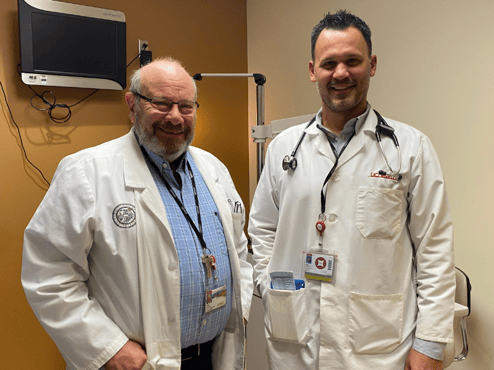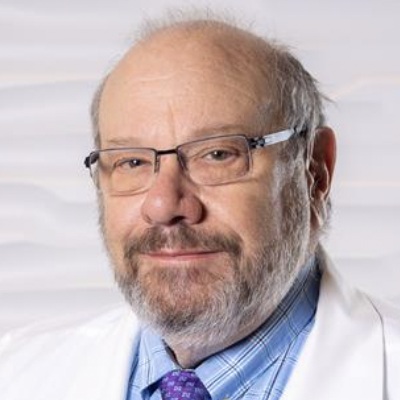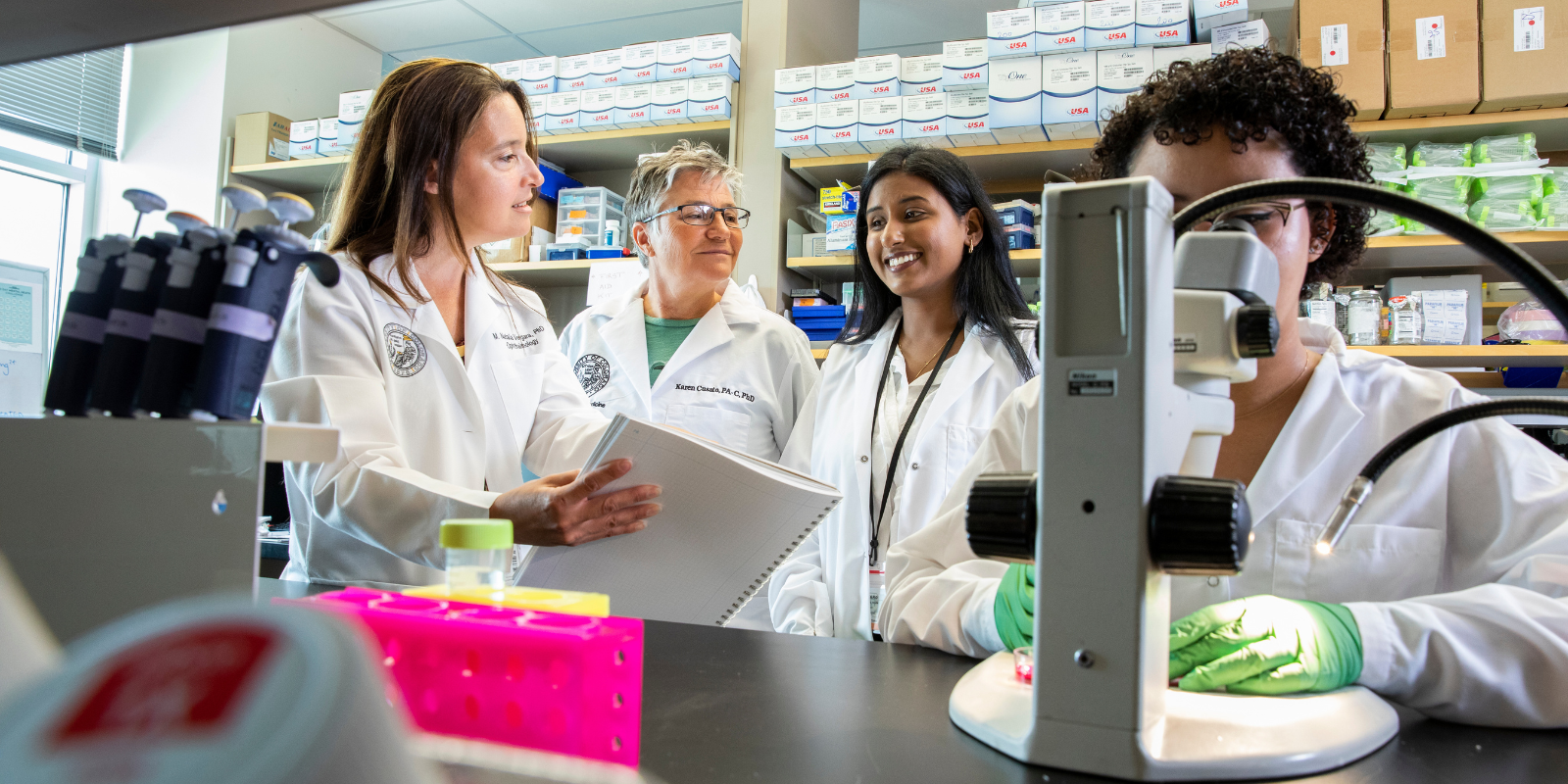Caleb Hebel was in his mid-30s, the prime of his life, with two active children and one on the way, when his mysterious ailment started. “I was go, go, go,” he recalls. “I played hockey, golf, and lifted weights. Our kids were involved in sports, so we were always going places.” On top of that, he was the chief financial officer of a real estate development company and principal of a family business.
He was mystified when he began feeling extreme fatigue, mental fog, and general malaise, but attributed it to his busy life. Then a cascade of even more troubling symptoms followed – from night sweats and shooting nerve pains, to muscle twitches, neck vibrations, and ocular migraines. When he began losing peripheral vision, he became even more alarmed. He sought help from one doctor after another, but there were no clear answers for his condition after several referrals.
“All tests kept coming back normal, no one had an explanation of what could be going on,” says Caleb’s wife, Amanda. “It felt like no one wanted to take the time to research. It was really up to us to find an answer for ourselves.”
Nearly two-and-a-half years after his initial symptoms, Caleb finally received a diagnosis from Alan Palestine, MD, professor of ophthalmology and chief of the Uveitis and Ocular Immunology Section at the University of Colorado School of Medicine.
Specialized, multidisciplinary care makes all the difference
After running two tests – one being an angiogram with fluorescent dye to test for blood vessel damage in the retina – Palestine diagnosed Caleb with a rare, autoimmune disorder called Susac syndrome, a condition in which the body’s immune system attacks the blood vessels that supply blood to the brain, retina, and inner ear. In Caleb’s case, it led to uveitis and retinal vasculitis – inflammation of the eye and involving the retina – which is a specialty of Palestine’s.
“He’s essentially had the equivalent of stroke in his retina, and part of the retina has been deprived of blood flow and died,” Palestine explains.
Getting the diagnosis was only the beginning: Caleb is now on a regimen of steroids, immunosuppression treatments, and low-dose chemotherapy to manage the inflammation associated with the disorder and prevent further vision loss.
Because uveitis frequently co-occurs with rheumatic diseases, Palestine created the Ocular Inflammation Multidisciplinary Clinic at the Sue Anschutz-Rodgers Eye Center in 2016 with Jason Kolfenbach, MD, associate professor of rheumatology at the CU School of Medicine. At the clinic, patients receive eye care from ophthalmologists while a rheumatologist focuses on inflammation in the rest of the body. The integrated treatment approach was important to the Hebels.
“When you see two doctors together, it makes all the difference in the world,” says Caleb. “You don’t have to repeat your health history to different specialists, and they’re reviewing your test results with you and interpreting them together.”
 Ophthalmologist Alan Palestine, MD, and rheumatologist Jason Kolfenbach, MD, work in concert to develop treatment plans for patients at the Center for Ocular Inflammation in the CU Department of Ophthalmology.
Ophthalmologist Alan Palestine, MD, and rheumatologist Jason Kolfenbach, MD, work in concert to develop treatment plans for patients at the Center for Ocular Inflammation in the CU Department of Ophthalmology.
This approach also enables the doctors to work more effectively on the treatment plan, rather than trying to communicate with each other after patient visits and follow up with the patient at the next appointment. “Everyone is on the same page at the same time,” says Palestine.
The Hebels would like to see more of this approach in health care.
“Our joint team of doctors are responsive,” Caleb says. “They understand where we’re at and why it’s important.”
Not long after his diagnosis, while on a trip to Chicago, Caleb experienced an occlusion, or blockage of a blood vessel, which precedes permanent vision loss as that section of the retina is deprived of blood.
“This is a terrifying experience when you can ‘see’ part of your vision being lost forever,” Caleb explains. “Therefore, quick actions are necessary to slow down further damage. I could text Dr. Palestine at 9 p.m. on a Friday asking for help, whether it be guidance on meds or ordering an emergency steroid infusion.”
Joining the fight to prevent blindness
Susac syndrome occurs in only 0.1% of the population, and there is no known cure. Although Caleb will never recover his peripheral vision losses, he’s determined to preserve his central vision so he can continue living life that he loves – filled with outings with their three children, exploring Colorado’s great outdoors, and traveling the world.
Because Susac syndrome is so rare, with each individual experiencing unique symptoms, there has been little research into the disorder and others like it. The Hebels – and Palestine – would like to change that.
Caleb believes having a multidisciplinary center dedicated to eye inflammation will lead to the collection of more data, translating to faster diagnoses and better treatments so others will not have to go through what he did.
Following the success of the Ocular Inflammation Multidisciplinary Clinic, the Hebels made a significant contribution to support Palestine’s work on a larger level. Palestine launched the Center for Ocular Inflammation in the Department of Ophthalmology in 2021, the first of its kind, providing integrative patient care, patient support, physician education, and research concerning ocular inflammatory diseases such as uveitis and scleritis.
“We had always thought about getting involved in philanthropy,” says Caleb. “This gives us the opportunity to follow our passions in an area where we saw a great need.”
To join the Hebels, and benefactors like them who support the sight-saving vision care and research at the Sue Anschutz-Rodgers Eye Center, you may contribute online here.




